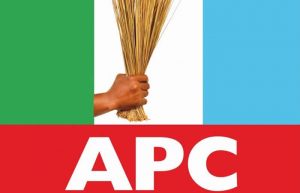The recent internal strife within the All Progressives Congress (APC), specifically the clash between Vice President Kashim Shettima’s loyalists and APC zonal leaders in Gombe State, has drawn sharp criticism from the Labour Party (LP), which views the incident as a manifestation of “political karma” for President Bola Tinubu’s perceived disparaging remarks about the opposition. The LP contends that the APC’s internal struggles expose a deeper issue of authoritarian tendencies and a disregard for democratic principles within the ruling party. They argue that President Tinubu’s alleged celebration of a weakened opposition signifies a weakening of democracy itself, and the Gombe incident serves as a stark reminder of the consequences of such an approach.
The LP emphasizes the irony of President Tinubu’s recent Democracy Day address, where he reportedly boasted about the opposition being in disarray, juxtaposed with the current turmoil within his own party. The LP sees the APC’s internal conflict as a direct consequence of the president’s alleged dismissive attitude towards the opposition. They argue that a healthy democracy requires a robust and vibrant opposition, and any attempt to suppress or undermine it ultimately weakens the democratic fabric of the nation. The LP’s statement underscores the importance of respecting dissenting voices and fostering a political environment that encourages open dialogue and constructive engagement.
The Gombe incident, according to the LP, highlights the APC’s internal power struggles and the alleged marginalization of Vice President Shettima within his own political base. This, the LP argues, exposes a pattern of authoritarian overreach within the ruling party, where individual ambitions are prioritized over party unity and due process. The public nature of the clash, the LP contends, further underscores the disregard for internal party cohesion and the potential for such conflicts to escalate and further destabilize the political landscape. The LP’s statement suggests that the APC’s internal dynamics are characterized by a lack of respect for dissenting views and a tendency to suppress internal dissent.
The LP, while acknowledging that it does not revel in the APC’s internal crisis, emphasizes the importance of the incident as a wake-up call for Nigerians. They urge President Tinubu to reflect on his leadership style and the potential consequences of his approach to governance. The LP emphasizes that the pursuit of personal ambition at the expense of national interest and democratic values is detrimental to the country’s progress. They reiterate their commitment to democratic ideals and call for a political environment that prioritizes truth, humility, and the collective good over individual political gains.
The LP’s statement serves as a critique of what they perceive as the APC’s authoritarian tendencies and a call for a more inclusive and democratic approach to governance. They argue that the APC’s internal struggles are a symptom of a deeper malaise within the ruling party, one characterized by a disregard for democratic principles and a willingness to suppress dissent. The LP calls for a shift in political culture, urging leaders to prioritize national interest and democratic values over personal ambition and partisan politics. They believe that a healthy democracy requires a strong and vibrant opposition, and any attempt to undermine it ultimately weakens the democratic fabric of the nation.
The LP’s response to the APC’s internal conflict underscores the importance of a robust and respected opposition in a democratic society. They argue that the opposition plays a crucial role in holding the government accountable and ensuring that the voices of all citizens are heard. They warn against the dangers of suppressing dissent and emphasize the need for a political environment that fosters open dialogue, constructive engagement, and respect for diverse perspectives. The LP’s statement serves as a reminder that the health of a democracy depends on the strength of its institutions, the respect for democratic principles, and the active participation of all citizens in the political process.













